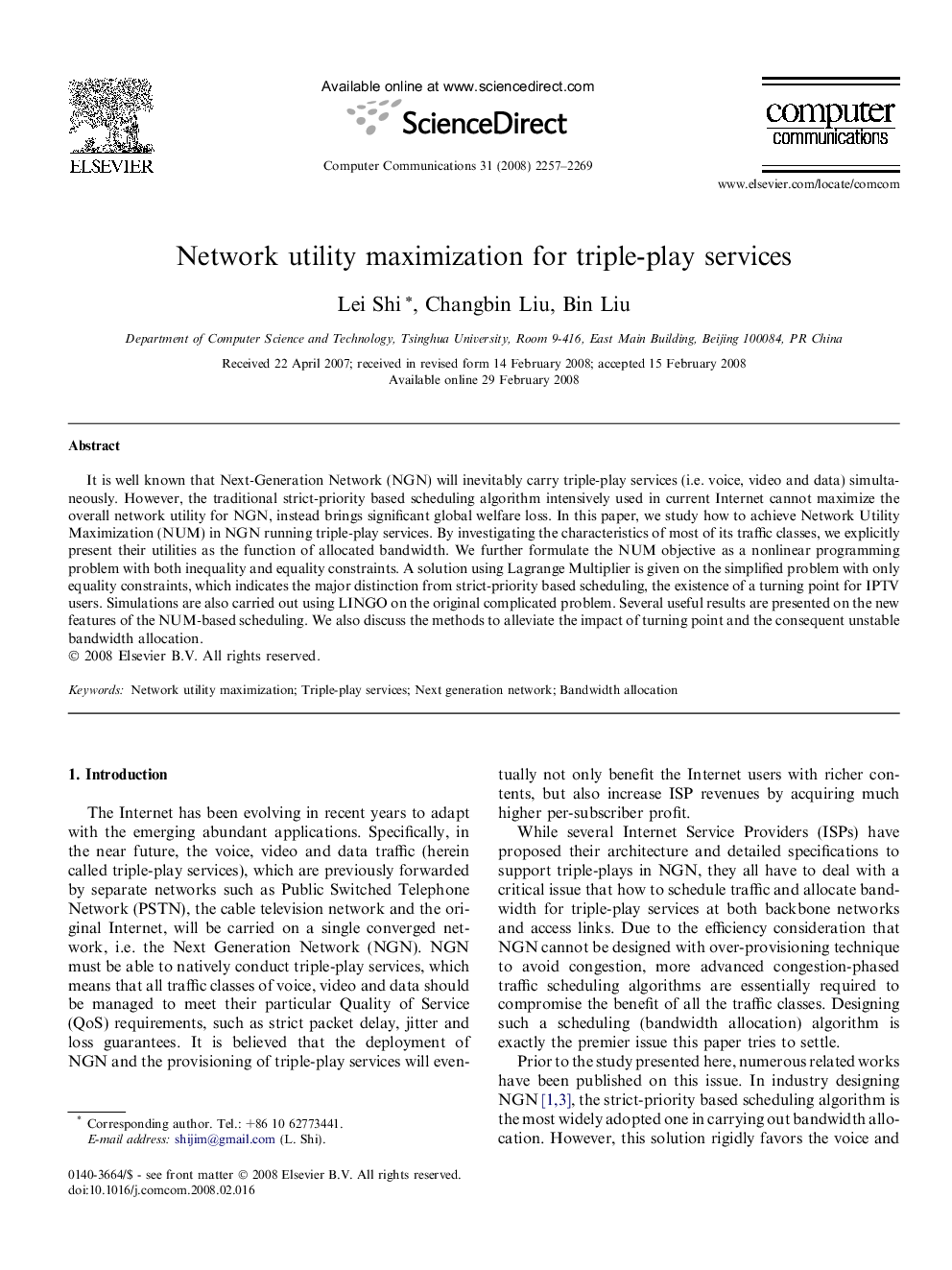| Article ID | Journal | Published Year | Pages | File Type |
|---|---|---|---|---|
| 450396 | Computer Communications | 2008 | 13 Pages |
It is well known that Next-Generation Network (NGN) will inevitably carry triple-play services (i.e. voice, video and data) simultaneously. However, the traditional strict-priority based scheduling algorithm intensively used in current Internet cannot maximize the overall network utility for NGN, instead brings significant global welfare loss. In this paper, we study how to achieve Network Utility Maximization (NUM) in NGN running triple-play services. By investigating the characteristics of most of its traffic classes, we explicitly present their utilities as the function of allocated bandwidth. We further formulate the NUM objective as a nonlinear programming problem with both inequality and equality constraints. A solution using Lagrange Multiplier is given on the simplified problem with only equality constraints, which indicates the major distinction from strict-priority based scheduling, the existence of a turning point for IPTV users. Simulations are also carried out using LINGO on the original complicated problem. Several useful results are presented on the new features of the NUM-based scheduling. We also discuss the methods to alleviate the impact of turning point and the consequent unstable bandwidth allocation.
